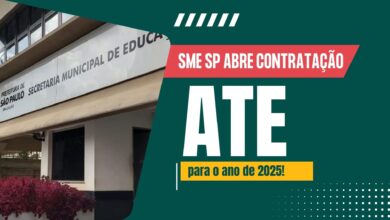A Universidade de São Paulo – USP através da Faculdade de Filosofia, Letras e Ciências Humanas – FFLCH anunciou a abertura de inscrições para o curso a distância Brazil and Palestine: sources of identification / Brasil e Palestina: fontes de identificação, a ser oferecido no mês de março de 2023.
O curso tem como proposta analisar os aspectos chave da história da Palestina, levando os alunos a refletirem acerca das relações entre o Brasil.
USP abre inscrições para curso sobre Brasil e Palestina:
Desse modo, as discussões abordarão temáticas que envolvem a sociedade civil brasileira e palestiva, levando em conta as principais questões sociais acerca da temática.
A carga horária total do curso é de 30 horas realizadas a distância, onde serão abordados os seguintes temas:
-
- 1. Palestinian history and the ongoing al nakba (Prof. Sa’d Nimr, Birzeit University)
- 2. Jerusalem: history and religions imprinted in its diverse architectural fabric (Prof. Yusuf Natsheh, Center for Jerusalem Studies, Al Quds University)
- 3. The Palestinian Refugees (Dr. Adnan Abdelrazek, author)
- 4. The political parties, youth movements, and the issue of succession in Palestine (Tahani Mustafa, West Bank analyst at the International Crisis Group)
- 5. Apartheid and the infrastructure of violence (Prof. Samer Abdelnour, University of Edinburgh)
- 6. The Palestinian diaspora and the presence of Arab culture in Brazil (Prof. Muna Odeh, University of Brasília)
- 7. South-South Translations (Prof. Wail Hassan, Prof. of Comparative Literature, University of Illinois) in dialogue with the author of The Enigma of Qaf (Alberto Musa, author) 8. The Bedouin communities in the West Bank today (Prof. Ahmad Amara, Al Quds University) in dialogue with The Guarani Mbya indigenous communities in face of land expropriation and other conflicts (Adriana Testa, Universidade de São Paulo)
- 9. The solutions put in place by the landless movement MST to promote sustainability and the permanence of peasants and traditional communities on their land (Dr. Kelli Mafort, Movimento dos trabalhadores rurais Sem Terra, MST) in dialogue with The Palestinian agricultural producers: sumud and creativity
- 10. The struggle for housing in Brazil and the case of Vila Nova Palestina in São Paulo (Nanci Pittelkow, Coordinator Movimento dos rabalhadores Sem Teto, MTST) in dialogue with Ethnic cleansing and gentrification in Palestine today (Prof. Munir Nuseibah, Al Quds University)
- 11. Palestine as literature in the writings of Elias Khoury (Prof. Safa Jubran, University of São Paulo) in dialogue with Is there a current Palestinian narrative? (Selma Dabbagh, author, novelist, and director of the International Centre of Justice for the Palestinians)
- 12. A new paradigm for the future of Palestine: what could a one-state look like? (Prof. Bashir Bashir, Van Leer Jerusalem Institute)
De acordo com a instituição, o público alvo dessa formação consiste em Estudantes e pesquisadores de História, Relações Internacionais, Diplomacia e demais áreas das ciências humanas, além do público interessado em geral.
São oferecidas 250 vagas com início das atividades em 9 de março de 2023.
Prazos de inscrições:
As inscrições são gratuitas e ocorrem até o dia 7 de março de 2023, pelo site APOLO USP.
Etapas de seleção para Curso sobre Palestina da USP:
O processo seletivo para preenchimento das vagas será por meio de sorteio eletrônico, classificando os candidatos de acordo com a ordem sorteada.
Os candidatos pleiteados com a vaga receberão a confirmação, sendo dever o candidato o acompanhamento das ações e das etapas do processo seletivo.




